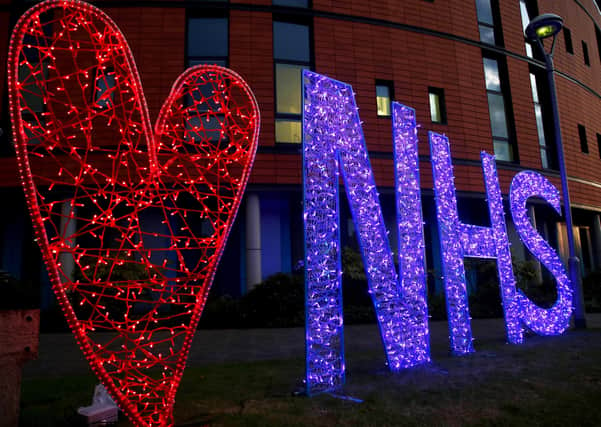Why does NHS charity Leeds Cares exist? Because we’re invaluable...


Over the last few weeks and months, as regular charitable giving fell, donors up and down the country have been seeking out their local NHS charity, to give back and say thanks to NHS keyworkers.
Yet, amid all this goodwill, there is also confusion and misunderstanding. As the charity supporting LeedsTeaching Hospitals, we have been faced with questioning about the reason for our very being. Put simply, why do NHS charities exist when we all pay our taxes?
Advertisement
Hide AdAdvertisement
Hide AdThe answer is equally simple – the NHS is too big and too complex to be able to respond to every need. NHS charities are here to fill that gap, to provide tailored, local responses to very specific problems.
There are more than 230 NHS charities across the UK and most of them focus on helping our hospitals achieve more than they could if they relied on NHS funds alone.
These organisations add that extra something special to every hospital interaction, every stay, every appointment.
Collectively these charities give around £1 million every day to their NHS organisations.
Advertisement
Hide AdAdvertisement
Hide AdThis extra funding doesn’t pay for doctors and nurses, or hospital beds, or ultrasound scanners. These are all standard elements of NHS care. However, what it can do, is fund a specialised research nurse who is taking time out of his day job to research secondary breast cancer. Or it can fund a reclining bedside chair so a tiredparent can sleep in the same room as their sick child. Or it can fund a portable scanner so doctors can visit contagious patients in isolation, rather than risk moving them across hospital wards. Charity funding doesn’t keep the NHS going – it simply makes it better.
As well as upgrading and improving existing services, NHS charities work to add a little light into what can be a dark time for patients and families. They mobilise volunteers to lend an ear or provide a cup of tea, they brighten up waiting rooms and ward areas, and they fund those staff deemed as ‘non-essential’ like play therapists and chaplains who can transform a patient’s stay in hospital.
NHS charities also help their partner organisations to innovate and move forward. From funding research to seed-funding experimental programmes, charitable funding allows local NHS organisations to be flexible in a way that the NHS as a whole cannot. Undoubtedly, when cures are found and lives are saved, it will have been charitable funding that will have paved the way.
If the last few months have taught me anything it is that NHS charities provide an invaluable service. They are there for patients and families, to try and improve what can be a very difficult time.
Our charities are also there for NHS staff, to stand shoulder to shoulder with them in their daily heroic task, of providing the very best care to our loved ones.
Comment Guidelines
National World encourages reader discussion on our stories. User feedback, insights and back-and-forth exchanges add a rich layer of context to reporting. Please review our Community Guidelines before commenting.